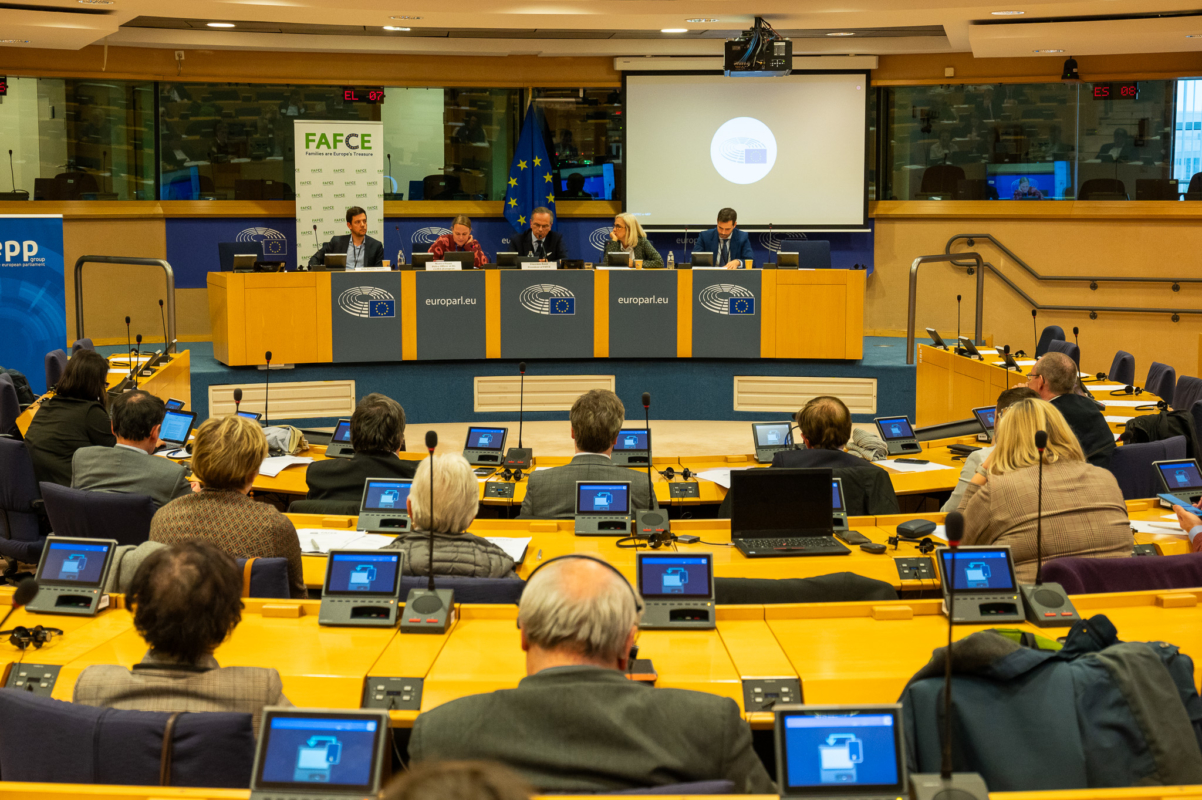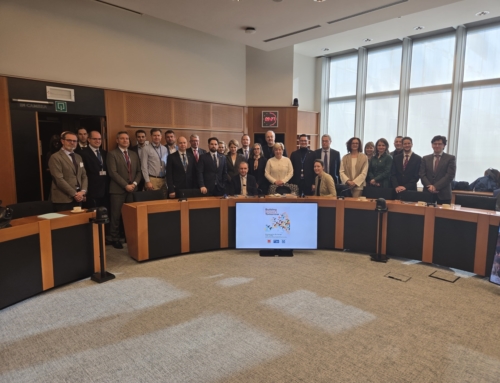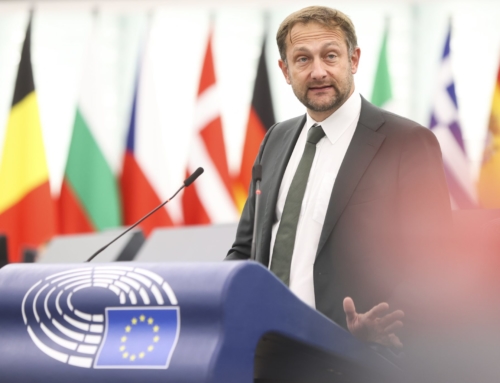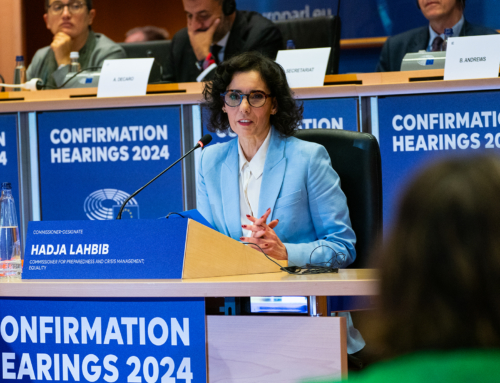Brussels, 15th November 2024
The Federation of Catholic Family Associations in Europe (FAFCE) convened its Board in Brussels to approve a resolution to address the disastrous demographic crisis facing Europe.
At the Board Meeting on the 7th November, the over 30 member representatives of FAFCE voted to urge the European Union and its institutions to take robust, practical actions in response to Europe’s demographic winter, highlighting the essential role of families and family networks as the cornerstone of a resilient and sustainable Europe. This followed a conference at the European Parliament co-organised by FAFCE and the Commission of the Bishops’ Conferences of the European Union (COMECE). Hosted by MEP Lukas Mandl, the panel focused on Integral Human Ecology and Intergenerational Solidarity, making the link between ecology and demography.
In the context of the European Commission’s renewed focus on demographic concerns, FAFCE’s Board Resolution calls for a comprehensive approach that positions families at the centre of demographic and social policy. As FAFCE President Vincenzo Bassi stated, “We are at a crossroads for Europe’s future. Our continent’s strength lies in our families, the bedrock of our society. Policies must prioritise and invest in the family and networks of families to ensure the prosperity and social cohesion of future generations.”
Central to the resolution is the declaration that there is “no future without the family”. Therefore, in order to protect long-term investment in tackling the demographic winter, the resolution recommends that EU institutions and Member States not to count demographic investments for the 3% of budget equilibrium.
Europe is currently facing a profound demographic crisis, characterised by an ageing population, declining birth rates, and increasing economic challenges for families. FAFCE believes that the EU must lead in implementing measures to counter these issues effectively. As Bassi noted, “Families are the architects of peace in times of conflict, the builders of unity in times of isolation, and the providers of solidarity across generations. A sustainable future for Europe depends on our support for them.”
FAFCE’s resolution underscores several key priorities:
- Recognition of Demographic Investment – Family and demographic policies should be seen as investments in Europe’s human capital rather than social expenses that contribute to public debt.2. Inclusion in Recovery Plans – Family policies should be integrated into National Recovery Plans, akin to environmental commitments, to support the future resilience of families.
- Dedicated EU Directorate-General – FAFCE proposes the establishment of a new Directorate-General for Demography and Regional Development to coordinate efforts and channel cohesion funds into regions with high demographic needs, such as areas with low birth rates and declining young populations.
- Mainstreaming Demographic Considerations – Demographic concerns must be woven into all EU policies, with the European Parliament and Commission adopting a cross-policy approach that strengthens social and economic cohesion throughout the Union.
- Creation of a European Demography Agency – FAFCE advocates for an EU Agency for Demography to collect critical data, identify demographic challenges, and support Member States in policy development, particularly in cooperation with civil society.
- Intergenerational Fairness – FAFCE applauds the new focus on intergenerational equity and calls on the EU to ensure policies that equitably support both young families and older generations.
The resolution reflects FAFCE’s commitment to a Europe that values family cohesion as the foundation of a stable society. Bassi added, “We must work together to ensure that Europe’s future is not one of isolation and despair but one that fosters a culture of life, dignity, and shared responsibility. The family is Europe’s future – we can secure that future only if we act together, today.”
Throughout the Board Meeting, FAFCE members provided updates on their activities in their home countries, demonstrating their admirable service to families in their local and national contexts. FAFCE staff also presented on their work in recent months.







